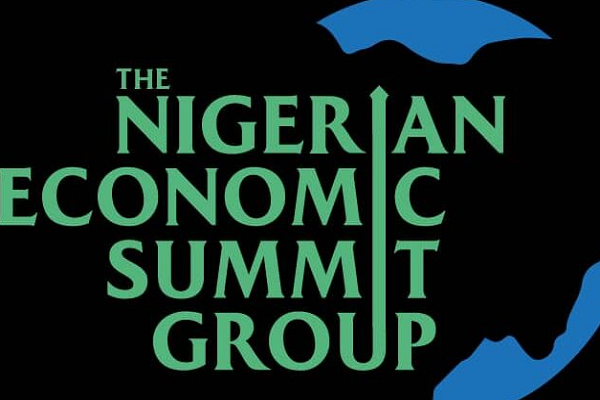The Nigerian Economic Summit Group (NESG) has held a significant pre-30th Nigerian Economic Summit (#NES30) webinar focused on ‘Leveraging the African Mining Vision for Nigeria’s Mining Industry Transformation and Growth’.
The meeting aimed to raise public awareness of the critical challenges hindering the Nigerian mining sector from achieving its full potential.
Despite the Federal Government’s ongoing efforts to revitalize the mining industry since 2005—through modernizing mining policies, laws, regulations, and investing in geoscience data—the sector’s contribution to Nigeria’s GDP remains minimal, accounting for less than 1 percent, according to the National Bureau of Statistics (2024).
The sector’s low contributions to employment, revenue, and exports, coupled with significant environmental, social, and economic impacts, highlight the urgent need for comprehensive reform.
In his welcome address, Engr. Mansur Ahmed, Private Sector Co-Chair of the MMPC Steering Committee, emphasized that the pre-summit webinar is crucial for developing policy options to unlock the full potential of Nigeria’s economy.
He acknowledged the vast potential of the mining sector, which remains unrealized due to challenges such as conflicts, terrorism, banditry, and inadequate sectoral reforms. Engr. Ahmed also highlighted the importance of aligning Nigeria’s mining sector with the African Mining Vision (AMV), a policy framework adopted by the African Union in 2009, aimed at ensuring that the continent’s mineral resources contribute significantly to sustainable development.
Professor Peter Akper, in his presentation, stressed the untapped potential of Nigeria’s mineral resources, which could significantly boost GDP, revenue earnings, and foreign exchange if properly harnessed. He noted that while reforms were initiated to reposition the sector, challenges such as security concerns, weak regulatory enforcement, and illegal mining activities have hampered progress.
He called for stronger collaboration between the Ministry of Solid Minerals and the Bureau of Public Enterprises (BPE) to implement structural reforms that could potentially increase GDP by 2.35%, create jobs, diversify government revenue streams, and attract foreign investments.
Delivering the keynote address, Mr. Mkhululi NkosilamandlaNcube, Programmes Officer at the African Minerals Development Centre (AMDC) of the African Union Commission, underscored the AMDC’s commitment to mainstreaming the AMV across African nations.
He pointed out that the AMV is designed to help countries maximize the benefits of mining, facilitating industrialization and broader socioeconomic development. Mr. Ncube highlighted that Nigeria, as one of the founding members of the AMDC and a recent signatory to the AMV, is well-positioned to leverage these opportunities for growth and transformation.
During the panel session, Dr. Ogbonnaya Orji, Executive Secretary of the Nigeria Extractive Industries Transparency Initiative (NEITI), presented key findings from NEITI’s Solid Minerals Audit Reports, which identified governance, procedural, and operational shortcomings within the mining sector. He emphasized the need for comprehensive reforms, drawing parallels with the successful implementation of the Petroleum Industry Act.
Mr. Ayodeji Ariyo Gbeleyi, Director General of the Bureau of Public Enterprises (BPE), shared insights from the BPE’s experience in reforming key economic sectors such as communications, electric power, petroleum, and transport. He provided a framework for how similar reforms could be applied to the mining sector.
Prince Adetokunbo Kayode, President of the Nigeria Private Sector Alliance, and Mr. Dele Ayanleke, National President of the Miners Association of Nigeria (MAN), also contributed to the discussions, highlighting the current operating environment in the mining sector and the increasing challenges posed by regulatory interference at the subnational level.
Mrs. Amina Sijuwade, Director of Iron Ore Mining Ltd, emphasized the need for a stronger legal and regulatory framework, better sectoral administration, and improved access to geoscience data to attract investment and drive growth in the mining sector.
The NESG remains committed to driving conversations that will lead to the transformation of Nigeria’s mining industry, aligning it with the AMV, and ensuring that the country benefits from its vast mineral wealth.
The 30th Nigerian Economic Summit, themed “Collaborative Action for Growth, Competitiveness, and Stability,” is set to take place from October 14th to 16th, 2024, at the Transcorp Hilton Hotel in Abuja. The Summit will convene stakeholders from across various sectors to address common challenges, create shared opportunities, and chart a path toward a unified, competitive, and prosperous future for Nigeria and the African continent.
ALSO READ THESE TOP STORIES FROM NIGERIAN TRIBUNE
Dangote Refinery debunks reports of projected fuel price hike
